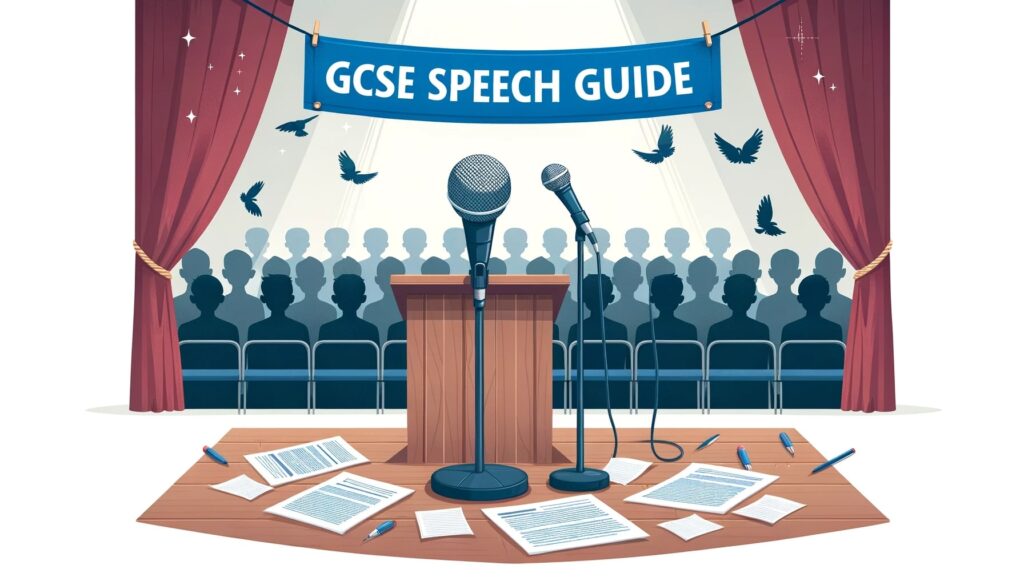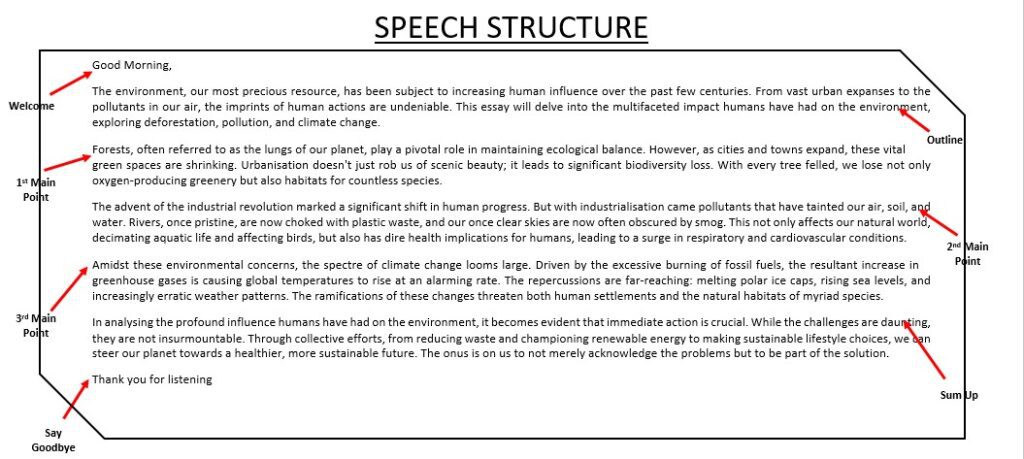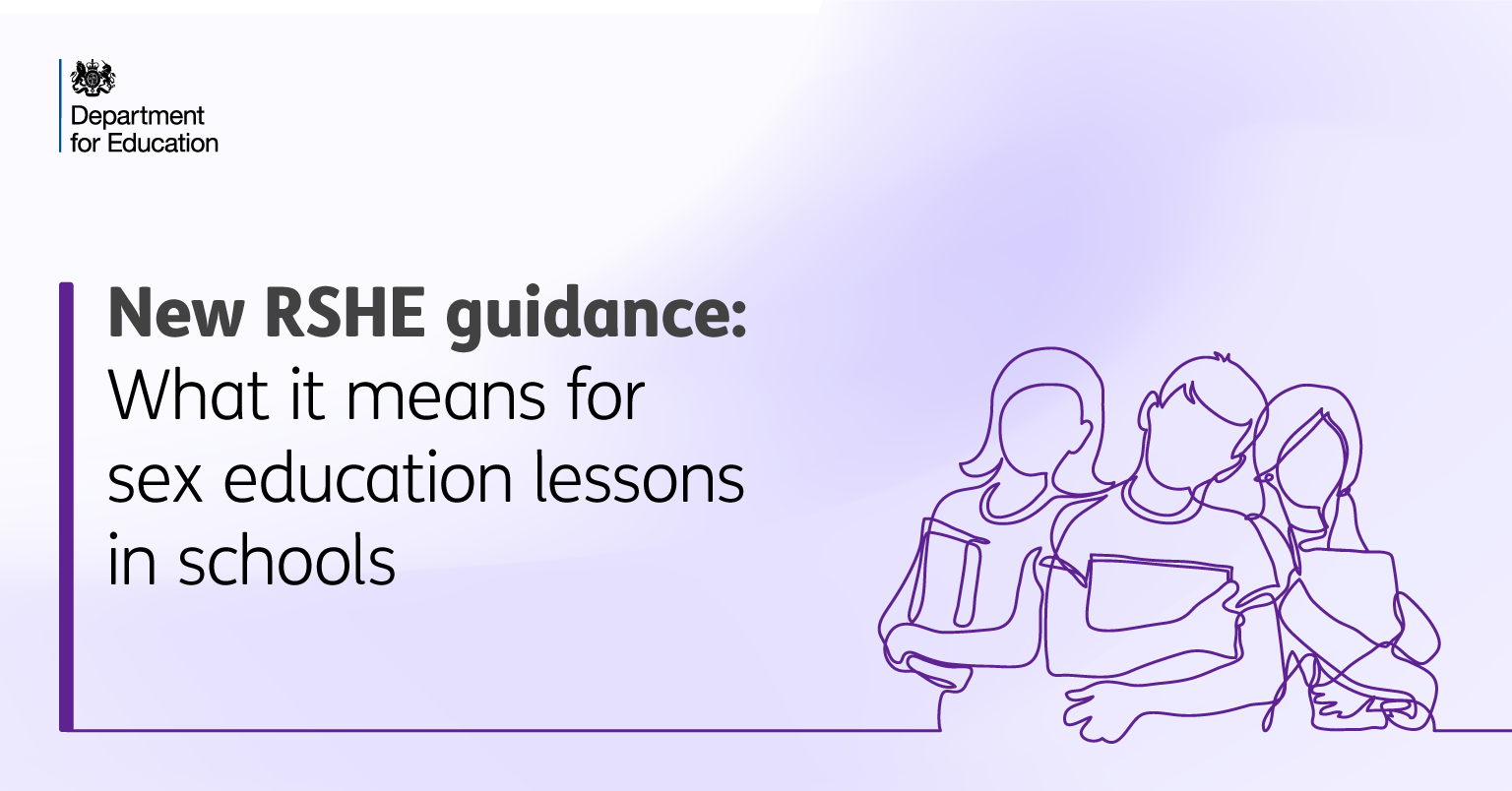

10 BEST WAYS TO WRITE A SPEECH: IGCSE ENGLISH
- Author: Litera Centre
- Updated: June 22, 2023
- Language: English

IGCSE – ENGLISH:
IGCSE – English, part of the International General Certificate of Secondary Education (IGCSE) curriculum, is a comprehensive English language program designed for students aged 14 to 16. It aims to develop essential language skills in reading, writing, speaking, and listening while also fostering critical thinking and analytical abilities. The IGCSE English curriculum covers a wide range of topics, including literature, language analysis, and communication. Students engage in various language activities, explore literary texts, and develop their writing skills through different genres. IGCSE English provides a solid foundation for further academic pursuits, as well as effective communication in real-life situations.
Speech in IGCSE?

In the context of the IGCSE (International General Certificate of Secondary Education) exam, a speech is a form of oral communication that requires students to present a prepared topic or theme clearly, structured, and engagingly. It allows students to showcase their communication skills, critical thinking, and ability to convey their ideas effectively to an audience. A speech in IGCSE exam typically follows a specific format: an introduction, body, and conclusion. The introduction captures the audience’s attention, establishes the purpose of the speech, and introduces the main points that will be discussed. The body paragraphs delve into these points, providing supporting evidence, examples, and arguments. Finally, the conclusion summarizes the key points and leaves a lasting impression on the audience. The IGCSE exam assesses various aspects of a speech, including content, structure, language, delivery, and overall impact. Students must demonstrate their ability to articulate their thoughts, organize their ideas coherently, use persuasive language and techniques, and engage the audience effectively. Moreover, students should exhibit confidence, clarity of expression, and an understanding of the audience’s needs and interests. Preparing for a speech in IGCSE exam involves extensive research, planning, writing, and practice. Students must select a relevant and compelling topic, gather supporting materials, craft a well-structured speech, and refine their delivery through repeated rehearsals. By mastering the art of delivering a powerful speech, students can excel in the IGCSE exam and develop valuable communication skills that will benefit them in various aspects of their academic and professional lives.
Importance Of Writing Good Speech in IGCSE:

Writing a good speech for the IGCSE exam holds immense importance. It is an opportunity to showcase not only one’s knowledge and understanding of the subject but also their communication and presentation skills. A well-crafted speech captivates the audience, effectively delivers key points, and leaves a lasting impact. It demonstrates the ability to organize thoughts coherently, utilize persuasive techniques, and engage the listeners. A good speech can elevate an individual’s performance, earning them higher marks and distinguishing them from their peers. Moreover, it cultivates essential skills like critical thinking, research, and public speaking, which are invaluable in academic and professional settings.
Speech, besides, is a powerful tool for influencing opinions and promoting change. Public speaking, for instance, has been used throughout history to rally crowds, inspire movements, and advocate for social justice. Individuals can raise awareness about important issues by delivering persuasive speeches, challenging prevailing norms, and igniting positive societal transformations. The impact of influential speeches can be seen in historical figures such as Martin Luther King Jr ., whose “I Have a Dream” speech fueled the Civil Rights Movement. One of the most iconic speeches in Indian history, Jawaharlal Nehru’s “Tryst with Destiny ” emphasizes the significance of the historical moment and outlines the country’s vision for the future. Similarly, “Quit India” by Mahatma Gandhi, and “Tryst with the Past” by B.R. Ambedkar are a few examples of exemplary speeches.
10 Best Ways To Write A Speech in IGCSE:
Whether you are presenting to your classmates or in front of an examiner, a well-crafted speech can leave a lasting impression. To help you excel in your IGCSE exam,
Here are the 10 best ways to write a good speech for IGCSE English:
1. Understanding the Purpose:
Before you start writing, clearly understand the purpose of your speech. Are you informing, persuading, or entertaining your audience? Identifying the purpose will guide your speech’s tone, structure, and content.
2. Knowing the Audience:
Tailor your speech to suit your audience’s interests, knowledge, and expectations. Consider their age, background, and specific characteristics that influence how they receive and respond to your message.
3. A Captivating Opening:
Grabbing attention from the beginning. Begin with a powerful quote, an intriguing question, a personal anecdote, or a thought-provoking statement. This helps engage your listeners and makes them eager to hear more.
4. Structure Of Speech:
Organize your speech logically and coherently. Use a clear introduction, body paragraphs, and a strong conclusion structures the speech organically. Each section should flow smoothly, transitioning from one idea to the next.
5. A Strong Thesis Statement:
The thesis statement of your speech is its central idea or the main argument. Clearly state this in your introduction, previewing the key points you will discuss throughout your speech.
6. Persuasive Language and Techniques:
To effectively convey your message, use persuasive language and techniques such as rhetorical questions, anecdotes, statistics, and emotional appeals. These devices will enhance your speech and make it more compelling.
7. Support Your Points with Evidence:
Support your statements with credible evidence, examples, and facts. This will add credibility to your speech and make your arguments more persuasive. Use reputable sources and cite them appropriately.
8. Vivid Language and Imagery:
Make your speech memorable by using vivid language and imagery. Paint a picture with your words, appealing to the senses and evoking emotions. This builds connectivity between you and your audience with your message on a deeper level.
9. Practice Delivery and Timing:
After writing your speech, practice delivering it aloud. Pay attention to your tone, pace, and body language. Aim for a natural and confident delivery. Time yourself to ensure that your speech fits within the allocated time limit.
10. Craft a Powerful Conclusion:
End your speech with a strong and impactful conclusion. Summarize your key points, restate your thesis, and leave your audience with a lasting impression. Consider ending with a memorable quote, a call to action, or a thought-provoking question.
Conclusion:
Writing a compelling speech requires careful thought and consideration. It is to be noted that writing a good speech requires careful planning, practice, and attention to detail. By following these 10 best ways, you can write a compelling speech that showcases your communication skills, knowledge, and ability to engage an audience. Remember to practice your delivery and be authentic in your delivery. With these strategies, one can be well-equipped to write an exceptional speech that will engage and move your audience. To ace the art of writing a good speech, head to our Litera Center IGCSE English curriculum and book a free demo class. Good luck with your IGCSE exam!
Leave a Reply Cancel reply
Your email address will not be published. Required fields are marked *
Save my name, email, and website in this browser for the next time I comment.
WAIT BUT WHY ?
When your demo class is free , international baccalaureate tuition with top ib certified tutors.
- IB Tutors in India
- IB Tutors in Singapore
- IB Tutors in Malaysia
- IB Tutors in Bangladesh
- IB Tutors in Nepal
- IB Tutors in UAE
- IB Tutors in Bahrain
- IB Tutors in Saudi Arabia
- IB Tutors in Thailand
- IB Tutors in France
- IB Tutors in Netherlands
- IB Tutors in USA
- IB Tutors in Denmark
- IB Tutors in Spain
- IB Tutors in Oman
- IB Tutors in Qatar
IGCSE Tuition with Experienced Cambridge Certified IGCSE Tutors
- IGCSE Tutors in India
- IGCSE Tutors in Singapore
- IGCSE Tutors in Malaysia
- IGCSE Tutors in Bangladesh
- IGCSE Tutors in Canada
- IGCSE Tutors in Nepal
- IGCSE Tutors in Saudi Arabia
- IGCSE Tutors in UAE
- IGCSE Tutors in Bahrain
- IGCSE Tutors in United Kingdom
- IGCSE Tutors in Thailand
- IGCSE Tutors in France
- IGCSE Tutors in Netherlands
- IGCSE Tutors in USA
- IGCSE Tutors in Japan
- IGCSE Tutors in Denmark
- IGCSE Tutors in Spain
- IGCSE Tutors in Oman
- IGCSE Tutors in Qatar
- IGCSE Tutors in South Korea
AS/A Level Tuition with Experienced Cambridge Certified AS/A Level Tutors
- AS/A Level Tutors In UAE
- AS/A Level Tutors In Mauritius
- AS/A Level Tutors In Singapore
- AS/A Level Tutors In UK
- AS/A Level Tutors In USA
- AS/A Level Tutors In Spain
- AS/A Level Tutors In Malaysia
- AS/A Level Tutors In Thailand
- AS/A Level Tutors In Saudi Arabia
- AS/A Level Tutors In Hong Kong
- AS/A Level Tutors In Indonesia
- AS/A Level Tutors In Hungary

We bring you a world-class international (both Indian and expat) team of highly experienced and qualified faculty.
- IBDP Tuition
- IB MYP Tuition
- IGCSE Tuition
- IB Retake Tuition
- AS/A Level Tuition
- SAT Exam Prep
- Meet Our Experts
- Enrollment Form
- University Guidance
Quick Links
- Terms of Use
- Privacy Policy
- Refund Policy
- Refer a Friend
- Referral Terms of Use
Have Questions ?
- 011-43632823
- +919871160718
- [email protected]
- New Delhi, India

Copyright 2024. All rights reserved with Litera Centre , part of Orbis Education powered by Orbis Future Learning Pvt. Ltd.
Get Amazon Voucher $25
Refer a friend and earn Amazon Voucher Worth $25(or equivalent to your local currency)

Best Ways to Write a Speech in IGCSE English
Home » Blog Microsite » Best Ways to Write a Speech in IGCSE English
3127 Reads Updated on: May 6, 2024
Updated on:

Table of Contents
IGCSE (International General Certificate of Secondary Education) offers up to 70 subjects to its students, including more than 30 languages. Students can take them in any combination. The groups under which the subjects are ordered are
- Group 1 – Languages
- Group 2 – Humanities and Social Sciences
- Group 3 – Sciences
- Group 4 – Mathematics and Business
- Group 5 – Creative and Professional and Vocational
Students have to choose 2 languages, one subject each from groups 2 to 5. The 7th subject can be chosen from any group 2 to 5. Apart from giving an international education certificate, high scores on the IGCSE have other benefits too.
- High job opportunities and expertise
- Higher education in countries abroad
- Work skills to adapt to social life
There are two options for the language English – English as the first language (EFL) and English as the second language (ESL)
Cambridge IGCSE First Language English (EFL) is curated for students whose first language is English. The course enables the students to
- Enhance their speaking and writing skills
- Expand their vocabulary, and use correct grammar, spelling, and punctuation
- Develop a personal style
- Develop an awareness of the audience being addressed
Cambridge IGCSE Second Language English (ESL) is curated for students whose native language is not English but have a working knowledge. The course enables the students to
- Understand and use English in a range of situations
- Enhance the awareness of the four language-learning skills – reading, writing,
- listening, and speaking
- Focus on the use of the language in everyday communication
- Learn to complement the other areas of the curriculum by developing the transferable skills
Thus, the students improve their communication abilities in this language, increasing their opportunities for further studies or for a planned career.
To choose the right option, consider two major parameters
- How comfortable and fluent are you in the English language
- What your future goals – either academic or career are
Assessments of EFL and ESL – Writing
Paper 1 and Paper 2 of the EFL require the students respond to texts provided in the examination
Paper 1 – Extended Response to Reading
- Requires the students to respond in 250–350 words to one of the following text types – speech, letter, report, journal, interview, and article
Paper 2 – Directed Writing – Two Questions
- Evaluate the information in the text to write a 250-350 worded
- discursive/argumentative/persuasive speech, letter, or article
- Descriptive or Narrative 350-450 worded composition
ESL Require the Students to Attempt the Following
- Make brief notes related to a text printed in the paper
- Write 80-word summary related to a text printed in the paper
- Write 100-150 words of continuous prose in response to a picture and/or short prompts printed in the paper
- Write a 100-150 review, report, or an article in response to a picture and/or shore prompts printed in the paper
Let us dig deeper into the component – Speech writing – which is one of the tasks in the paper. Speech is the expression of or the ability to express thoughts, ideas, and feelings by articulate sounds.
If you have not written any speech, then surely writing one will be intimidating. But with the right techniques, anyone can write a speech. The main purpose of giving/writing a speech is making the audience buy your idea or pay attention to your thoughts and ideas.
Features of a Good Speech Writing Task
- The student will be given a reading booklet insert containing the passage for the speech writing. Questions related to the passage also will be provided. The student needs to read the passage carefully.
- After thoroughly understanding the question, he needs to select the relevant points from the passage.
- He then needs to convert the selected points into his own words.
- Finally, he needs to put the points and put them together to create an effective speech
Picking The Relevant Points of The Passage
The large variety of plants in Hawaii must have spread over considerable distances because the Hawaiian Islands have never been connected to other land masses. This necessitates a method of transportation as well as ecological parity between the source area and the recipient area.There is some debate around the involved transit technique. Some biologists claim that air and ocean currents transport plant seeds to Hawaii.
The results of flotation experiments and the brisk air currents, however, call into doubt these presumptions. Transport by birds is more likely to happen, either externally through unintentional feather attachment of the seeds or inside through fruit digestion and subsequent seed release. Even though it’s likely that fewer kinds of plant seeds have traveled to Hawaii externally than internally, more plant species are known to be suited to external than to internal travel.
The passage talks about the plantation in Hawaii islands. Since it is an island, the author emphasizes the long-distance dispersal of seeds for the growth of the plants.
He then talks about the dispute in the methods of seeds dispersal – ocean and air currents, and birds. He also discusses the reasons causing doubts on the hypotheses.
Paraphrasing The Points
Let us consider a few examples for paraphrasing the chosen relevant points:
- My business partners and I are currently working to secure funding for a brand-new firm we are launching.
- I’m currently looking for capital for my new company with my business partners.
- This brand is preferred by most plumbers.
- Many plumbers favor this brand.
- The still waters of the Caribbean were teal in color.
- The turquoise Caribbean waters were beautifully calm.
- In the first season of the program, Mary’s brother and sister banded together to oppose her.
- Earlier on in the show, Mary’s sister and brother struck a bargain. logically putting everything together
Putting The Points Together in a Cohesive Manner
The speech should be well planned out and smooth. The essence of your idea that you want to share with the audience should be strong and firm and use words that are simple yet impactful.
1. Always write the speech in the first -person point of view, as you are the person delivering your idea in front of the audience. Use of personal pronouns is a strong way to connect. For example
“I am sure that you would agree with me…” “I believe that you would have come across…’ “We all follow the same…”
2. Use anecdotes – philosophical, inspirational, or humorous. These can be used to – convey messages or for motivational purposes or deter the audience from doing something rather than handing over a list of rules.
3. Use Rhetorical questions – By bringing out the questions, you are not expecting any answers rather sets your audience thinking on your idea.
4. Clear Paragraphs – Have clear topic sentences with separate ideas for each paragraph though they are not mentioned. Each paragraph has to have the path indicators depending on whether it is in line with the previous paragraph or contradicting the previous idea. For example, ‘Another’, ‘In addition to’,
5. ‘Furthermore’, ‘Additionally’ – all these are indicators that you are conveying the same idea present in the previous paragraph. And ‘Yet’, ‘But’ ‘In contrast’,
6. ‘Contrary to’ – all these indicate that you are deviating or giving the other version of the idea presented in the previous paragraph. Each paragraph should have a topic sentence, supporting details, colorful vocabulary, and a concluding sentence.
7. Range of vocabulary – Sometimes a range of vocabulary included in your speech can take care of repetitive words and make your sentences stand out. Also building vocabulary helps in the paraphrasing task.
Keep the sentences short to avoid deviating from the topic. This makes sure that the reader/listener is on the same page as you are.
8. Appropriate closing – A good speech as it should have a strong opening should have an appropriate closing too with a small reiteration of your idea and a thanks to the audience.
Manya – The Princeton Review
Manya – The Princeton Review offers end-to-end study abroad services encompassing admissions consulting services , test preparation, English language training, career assessment, and international internship opportunities to study abroad aspirants. Founded in 2002, Manya holds an impeccable track record of enabling more than 4 lac students to accomplish their study abroad dreams through its network of 47+ centers across India.
Manya has formed long-lasting global alliances with several market leaders in the education industry in order to maximize the benefits of its large service portfolio. Their list of esteemed partners and affiliations includes – The Princeton Review (TPR), Cambridge University Press (CUP), Cogito Hub, British Council, Tuding to name a few. Manya has also forged 600+ partnerships with international universities across top study abroad destinations.
Are students allowed to bring dictionaries to the IGCSE english exam?
No, dictionaries are not allowed to bring in the IGCSE english exam.
Can a student use the British language English rather than American and Australian language English?
Yes. Students can use the British language, American and Australian languages in the IGCSE English exam.
How to write a speech for the IGCSE English exam?
To write a speech one needs to point out the relevant information from the passage. The student needs to put and complete the sentence in a logical manner. There must be a flow in the passage. And with the appropriate closing to end the speech.
What is Speech Writing?
Speech writing is the art and process to write a summary in a logical manner. In order to describe a topic for 5-10 mins of duration. Thus, This is called speech writing.
What is the format of speech writing?
First, start with the introduction. Second, followed by the body (main content). Last, End with a conclusion. Thus this is the format of speech writing.
Previous Blog
Related Blogs

Points to Know About Your Article Writing – IGCSE English

How to Use and Construct a Mathematics Cheat Sheet?

Tips for IBDP-TOK and a Sample Essay
Just One Step Away! Our Experts require more information to assist you in a better way.
Your privacy is important to us
Admissions Consulting Packages

Trending Blogs
- Study abroad
- Study Abroad UK
- Study Abroad US
- Study Abroad Canada
- Study Abroad Australia
- Study Abroad Germany
- Study Abroad South Korea
- Study Abroad Spain
- Study Abroad Netherlands
- Study Abroad Switzerland
- Study Abroad Japan

Just One Step Away!
Our Experts require more information to assist you in a better way.
Testimonial
Download Form
Privacy overview.
Necessary cookies are absolutely essential for the website to function properly. This category only includes cookies that ensures basic functionalities and security features of the website. These cookies do not store any personal information.
Any cookies that may not be particularly necessary for the website to function and is used specifically to collect user personal data via analytics, ads, other embedded contents are termed as non-necessary cookies. It is mandatory to procure user consent prior to running these cookies on your website.
10 Best Ways to Write a Speech - IGCSE English
What is a speech.
Speech is the delivery of a message to an audience via the spoken word. It is often used to persuade the audience to support an idea, or to explain/describe an interesting topic or event.
This question mostly appears in Paper 1 of your English Language and Literature question paper .
Features of Speech Writing
You will be given a reading booklet insert containing the passage for the speech writing. Read through the passage carefully. The adjacent question will be provided in the question paper booklet.
You would have to choose relevant points from the passage after having a thorough understanding of the question.
Now, convert the passage's selected points into your own words. After that, you can start putting the points together in a cohesive manner in the form of an effective speech.
Let’s take a look at how to convert the selected points from the passage into your own words.
“We could only see barren mountains despite walking for four hours. There were no other travellers on the mountain except a few lonely dwellings.”
"Four hours had passed, and all we could see were barren mountains. The route was devoid of other travellers; the only sign of human habitation was a couple of tiny, isolated dwellings."
Can you see how I modified the sentence structure and words from the highlighted section without altering the paragraph's meaning? This is how it's done; it's not easy at first, but with practise, it will become easier.
- A speech shouldn't be a stream of consciousness, it should rather be well planned out. It should seem effortless and smooth. Make sure that you bring out a strong sense of voice and use words that are simple yet impactful.
Let’s look at an example of an impactful and powerful speech from history and analyse it to understand better.
“we shall defend our Island, whatever the cost may be, we shall fight on the beaches, we shall fight on the landing grounds, we shall fight in the fields and in the streets, we shall fight in the hills; we shall never surrender.”
Winston Churchill, 4 June, 1940
This speech was delivered by Winston Churchill in 1940 during adverse situations to inspire people to come together and fight on. If we take a closer look at the highlighted text we see repetitions of phrases and a rhyme scheme cleverly embedded into the speech. This evokes feelings of awe in us. We are automatically drawn to the articulation and our hearts pound in patriotism.
This is precisely the effect a speech should have on people. Your speech need not necessarily evoke awe but it should convey the message in an effective and efficient manner.
Always write your speech in the first person point of view . Since you are the person who is delivering the speech in front of an audience.
You may need to refer to the audience at times during your speech; in those situations, it is better to use the term we . Why, you may wonder, because it evokes a sense of unity rather than division. When giving a speech, this is a vital consideration. As seen in the example above, Churchill uses we repetitively thus inspiring the listeners. It unites the crowd and creates a sense of oneness in them.
Have clear topic sentences with separate ideas for each paragraph. It need not be mentioned but should have an idea what each paragraph should be about. This helps your speech be coherent and not mixed up.
Use informal language to connect with the audience, using high diction will create no effect in the minds of the audience. The message may be unclear, misconstrued or confusing.
Usage of emotive language, rhetorical questions, comparison are advisable. As seen in the example above Churchill has used emotive language via rhythm and repetition.
Keep the sentences short so you don’t deviate from the topic. This makes sure that the listener is following you and you don’t lose track of your sentence. It also ensures your sentence structure is perfect.
Here’s an Example:
Read Passage A in the insert and answer this question
You are the Head Guide, Chris (Peter’s boss). You are responsible for training the safari guides. When a group of new trainee guides arrives at the camp, you give a talk to prepare them for what lies ahead.
Write the words of your talk.
In your talk, you should:
- describe the range of attractions Idube Camp and the area around it have to offer and how these might appeal to guests
- explain what being a trainee guide is like – the kind of activities they will be asked to do and what they should and should not do as trainees
- suggest what makes a good safari guide, the challenges of the job and the personal qualities they will need to develop.
Welcome to Idube Camp! I hope you are excited for the new experience of the camp. There are many exciting things ready for you to explore, one of them is the safari drives where you can see dangerous animals in their habitat and how they interact with each other. Secondly, there will be guided walks where the safari guides will explain the surroundings and tell what you missed during the walk. Lastly, there are dinner nights with delicious food and service with socializing under the starlight. The place is decorated with lanterns.
Being a trainee guide one should remain calm at all times. You should always be the ones to lead the group. Trainees are also required to carry liquid drinks to Bush Camp. My advice to you is to never run whatever you do. Try to never forget this point as it is essential and crucial.
What makes a good safari guide are the little things which are often overlooked. The in-depth knowledge of trees, birds and insects will help you. You should also be aware of taking shortcuts and changing paths when required. There are also some challenges guides should overcome first of all, carrying cans when they happen to let go of the wheelbarrow. It is also important to know the different bird calls to know whether they are alarm calls against predators or you. This will help you in navigation and protection.
So, I hope you are excited to begin this journey with us. We welcome you to Camp Idube with all our hearts! Thank you!
Are you having trouble understanding these concepts? Do you want assistance from a subject matter expert? Here, at Vidyalai we help your child achieve the grade they aspire for. Our SMEs are trained and experienced tutors who will provide you with each and every help when required. We are just a click away. Request your first lesson now. . We guarantee 100% satisfaction on your first session, if you are not satisfied,the session will be absolutely free.
Whatmakesagoodspeech?
A speech is a planned and practised text that you will need to perform in front of other class members. It should be approximately two minutes, although your teacher will make this clear. Speech topics range from the more serious ‘Present a global issue affecting the planet in the twenty-first century’, or the light-hearted ‘Persuade the class to watch a film of your choice.’ No matter what the topic, you will need a clear message with a concise argument. It is no use shrugging your shoulders and saying ‘I don’t know.’ You will need to be proactive with your research and opinions.
Watch the following video on Michelle Obama:
https://www.youtube.com/watch?v=J-YYnz7JHVc
How well written is the speech?
How does she perform the speech?
Obama has clearly structured her speech. She has memorised the planned words.
- Use of pauses
Obama allows for audience reaction and response. It is is easy to fear pauses, but let the audience have time to consider the message of your speech. Note that she does not stutter or stumble over her words.
- Use of voice
Obama considers where the emotion in her voice should lie. As she is discussing her children, her voice sounds warmer and more emotional.
- Use of hand movement
Obama does not keep her hands still. She allows herself to show her emotion through her hand gestures. You need to keep still but allow yourself to express feeling.
How should you structure your speech?
You must structure your speech according to purpose and topic:
- Introduction - clearly state your view and
- Arguments - provide 3 clear arguments. They should all strengthen and build upon your introduction. Think of each argument as a hamburger:

Each detail should be well researched. Provide statistics for your audience that are useful and support your argument. Your ‘colourful vocabulary’ should adhere to the purpose of your speech.
- Conclusion - reiterate your argument clearly. Ensure you end with a strong finish.
What is Standard English?
There are two types of English: Standard English and non-Standard English. Standard English is widely considered to be the ‘correct’ form of the language, whilst the non-Standard form is a more informal form of the language.
Look at these two sentences:
- 2mrw I go 2 the cinema 4 my brthday.
- Tomorrow, I will go to the cinema for my birthday.
Which is Standard and which is non-Standard?
- 2mrw I go 2 cinema 4 brthday (non-Standard)
- Use of numbers instead of letters
- Incorrect spelling
- Use of tense is incorrect
- Lack of accurate grammar
- Lack of accurate punctuation
- Tomorrow, I will go to the cinema for my birthday (Standard)
- Letters are used
- Correct spelling
- Tense is correct
- Accurate grammar
- Accurate punctuation
It is incredibly important that the speech is written in Standard English, so that you sound professional and formal.
It’s important to practise your speech and not just use the tips for memorising:
- Use a video recorder or phone and record yourself. Watch the tape and ensure you are looking still and confident.
- Practise in front of the mirror. You can add different body movements to show your confidence.
- Ask the family to be an audience. They will probably love to be involved in your school project. It does not matter how well they speak English but they can tell you if you are standing still and looking confident!
Remember to write a list of possible questions down that you might be asked by your teacher or fellow students. You must plan the answers.
You will be nervous on the day and the words will probably escape you. Your classmates will all be feeling exactly the same.
- Stand confidently
- Do not fidget
- Speak loudly and clearly
- Do not be scared to show emotion in your voice
- Do not laugh
You need to look professional when you are performing your speech.
You will be assessed immediately and feedback should be provided straight away. There are a few official forms to complete, so try not to be surprised if your teacher is writing lots of notes. You may even be asked to peer assess other members of the class.
We use cookies to personalise your experience.

How to Write a Speech GCSE – Score 9 in English GCSE Exam
Ever pondered ‘How do I start my GCSE English speech?’ or ‘What should I write my GCSE speech on?’ Crafting a compelling speech can be daunting, especially when it’s for your GCSE English exam. This guide will help you navigate the nuances of the GCSE English speaking and listening topic ideas and master the art of speech writing.
What is the GCSE Speech Exam?
The Speech GCSE includes an assessment of students’ spoken language abilities. This assessment is an integral part of the English GCSE exam , where you are required to demonstrate your speaking and listening skills. Most students typically choose from a range of GCSE spoken language topic ideas and present a speech, followed by a discussion with the examiner. This assessment not only evaluates your knowledge of the topic but also the ability to structure your thoughts, use persuasive techniques , and engage the audience.

What’s the Good Starting Point for GCSE Speech?
While there is no one-size-fits-all approach to structuring your speech, understanding the basic speech layout can provide a solid starting point. Typically, you’ll want to start with an engaging introduction, followed by 2-3 key points that support your topic, and a compelling conclusion to wrap things up.

How to Choose the Right Topic For GCSE Speech?
Before you even begin writing a speech, it’s crucial to have a well-defined topic. Your topic sets the tone for your entire speech, so it has to be something you are passionate about and can speak on with authority. Moreover, a well-chosen topic significantly impacts what makes a good speech.
While your GCSE English speaking topic should ideally be interesting to your audience, it should also resonate with your own interests and strengths. This is the time to brainstorm English GCSE speaking ideas . The right topic can not only engage your audience but also allow you to showcase your oratory skills effectively.
Knowing Your Audience
If there’s one factor that can make or break your speech, it’s the audience. Knowing who you’re speaking to allows you to tailor your language, tone, and content to resonate with them effectively. Ask yourself the following questions:
The better you understand these aspects, the easier it will be to connect and make a meaningful impact, thus further defining what makes a good speech.
Ideas for Speaking and Listening GCSE English
Choosing a topic that resonates with your audience is key. Given the requirements for GCSE speaking exam topics, you may want to consider issues like climate change, social media’s impact on mental health, or the importance of voting. These subjects are not only engaging but also provide ample scope for discussion and argument.
Here are some English Speaking Exam Topic Ideas to Consider:
- Climate Change and Its Global Impact
- Social Media and Mental Health
- The Importance of Voting
- Artificial Intelligence and Ethics
- The Future of Work in a Post-Pandemic World
- The Role of Education in Shaping Character
- Sustainable Living and Consumer Choices
To sum up, here are some tips to consider:
Choose a topic that excites you; your enthusiasm will be contagious.
Make sure the topic is relevant to your audience.
Opt for subjects that are neither too broad nor too narrow.

The Structure of a Good GCSE Speech
A successful speech is more than just a string of words; it’s a well-thought-out sequence designed to captivate your audience. Here, we’ll delve into the speech structure and discuss how to structure a speech for maximum impact. A typical speech will consist of an introduction, body, and conclusion.
Introduction: Capture attention and state your main point.
Body: Build your argument or narrative with supporting evidence.
Conclusion: Summarise the key points and finish with a strong statement or call to action.
How do I start my GCSE English speech?
You have but a few precious moments to seize your audience’s attention. The way you start a speech can dictate whether your audience tunes in or zones out. The opening sets the tone and context for everything that follows, making it an integral part of how to open a speech effectively.
Dos and Don’ts of Starting Your GCSE Speech
- Open with a Provocative Question: Pose a question that challenges common beliefs or perceptions. For instance, “What if I told you that everything you knew about climate change was wrong?”
- Share a Personal Story: Relate an anecdote or personal experience that ties into your main topic. “Three years ago, I stood at the edge of a shrinking glacier, and that moment changed my perspective forever.”
- Use a Relevant Quote: Start with a powerful quote from a renowned figure that encapsulates the essence of your speech. “As Martin Luther King Jr. once said, ‘Our lives begin to end the day we become silent about things that matter.'”
- Present a Shocking Statistic: Share a surprising fact or figure that grabs attention immediately. “Did you know that every minute, the equivalent of one garbage truck of plastic is dumped into our oceans?”
- Paint a Vivid Picture: Use descriptive language to create a vivid scene or imagery in the minds of your audience. “Imagine a world where forests no longer exist, where silence replaces the chirping of birds.”
- With an Apology: Avoid starting with phrases like “Sorry for…” or “I’m not an expert, but…”. It undermines your credibility from the get-go.
- Using Clichés: Starting with overused phrases like “Webster’s dictionary defines…” can come off as uninspired.
- Being Too Broad or Vague: Avoid generic openings like “Today, I want to talk about life.” It doesn’t give the audience a clear sense of direction.
- Overloading with Information: Avoid bombarding your audience with too many stats or facts right at the start. It can be overwhelming.
- Being Negative or Confrontational: Starting with a confrontational tone, such as “Most of you probably won’t agree with me…” can put the audience on the defensive.

Maths | English Tutor
Student at UNIVERSITY OF CAMBRIDGE
£20 Per session

Types of Speech Starters
So, what makes an opening memorable? There are numerous speech starters that can serve as a strong foundation for your talk. Here are a few tried and true methods:
Start with a provocative question to engage your audience’s curiosity.
Use a relevant quote that encapsulates your message.
Kick off with a shocking fact or statistic that supports your argument.
for instance
- Start with a Provocative Question: Engage your audience’s curiosity right from the outset. For instance, “What if I told you that by 2050, there could be more plastic in the ocean than fish?”
- Use a Relevant Quote: Begin with a powerful quotation that encapsulates the essence of your message. Consider using, “Nelson Mandela once said, ‘Education is the most powerful weapon which you can use to change the world.'”
- Kick off with a Shocking Fact or Statistic: Share a surprising piece of information that supports your argument and grabs immediate attention. For example, “Recent studies reveal that an alarming 70% of young adults experience social media-induced anxiety.

Tailoring the Opening to GCSE Criteria
For students particularly interested in GCSE speaking exam topics, it’s crucial to note that examiners look for a range of specific elements in your opening. These can include clarity of expression, engagement with the audience, and a clear outline of what the speech will cover.
How to Structure My GCSE Speech?
A well-structured speech isn’t just a nicety—it’s a necessity. Especially when it comes to GCSE English, having a well-organised flow of ideas is pivotal to engaging your audience and making your points hit home. The way you structure your speech impacts not just its effectiveness but also how smoothly you can deliver it . When we talk about structure in the English language, we’re referring to the arrangement of your introduction, body, and conclusion, as well as the logical progression of your arguments.
Common Structural Techniques in GCSE English
There are several structural techniques in GCSE English that can amplify your speech’s effectiveness. For example:
- Repetition :Reinforcing key points by repeating them helps to keep your audience engaged.
- Tripling : Enumerating three related points or arguments can make your speech more memorable.
- Rhetorical questions : These engage the audience and provoke thought, without requiring an answer.
- These are some of the tried-and-true structural techniques GCSE students can employ to enhance their presentations.
How Structure and Language Interact?
The marriage between language and structure is a match made in rhetorical heaven. Your language choices should serve your structural design and vice versa. For example, if you’re using tripling, you’ll need to select words or phrases that have a similar tone or rhythm to create a sense of unity. By having your English language structure techniques complement your chosen words, you’re setting the stage for a cohesive and engaging presentation.
Implementing Structural Techniques for GCSE Criteria
How do these techniques match up with GCSE criteria? To excel in GCSE English , you’ll need to demonstrate an adept use of a range of structural devices. Whether it’s crafting a compelling introduction or providing a powerful conclusion, these structural elements are integral in showcasing your understanding of the English language structure techniques required for this level of examination.
Why Language Matters in GCSE English?
You’ve probably heard the phrase, “It’s not what you say; it’s how you say it.” Well, when it comes to your GCSE English speech, both matter immensely. Your choice of words and how you string them together can captivate your audience and leave a lasting impression. Employing the right GCSE English language techniques is paramount in this regard.
The Essentials of Rhetorical Devices
Rhetorical devices are the tools of the trade when it comes to effective speech writing. These include metaphors, similes, and alliteration, among others. Familiarising yourself with these techniques in the English language will enable you to elevate the quality of your speech. By doing so, you’re more likely to meet and perhaps even exceed GCSE language techniques expectations.
Crafting Sentences for Maximum Impact
The structure of your sentences can significantly influence the power of your speech. Consider varying sentence length to maintain interest, employing short, impactful sentences for key points and longer, more complex ones for detailed explanations. These are among the essential English language techniques for GCSE that you’ll want to master.
Practical Examples of Effective Structure
To solidify your understanding, consider these real-world examples:
Martin Luther King Jr.’s ‘I Have a Dream’ speech is an excellent study in effective repetition and emotive language.
Winston Churchill’s ‘We Shall Fight on the Beaches’ uses tripling to emphasise Britain’s determination during WWII.
Both examples can be adapted to meet GCSE standards, offering invaluable lessons in how to effectively employ structural techniques.

How to End My GCSE Speech?
Every great GCSE speech deserves a powerful finish. Your conclusion is the final impression you’ll leave on your audience and the examiner, so it’s vital to get it right. Whether you’re discussing GCSE spoken language topic ideas or any other English GCSE speaking exam topics, your conclusion should encapsulate your main points and leave a lasting impression. Here’s how:
Reiterate Key Points
Quickly recap the main arguments or insights from your speech’s body. This helps solidify your message and reminds the audience of your core GCSE English speaking and listening topic ideas.
End with a Bang
A thought-provoking statement, a call-to-action, or a powerful quote can provide that final punch. Wondering how to end a speech in a way that lingers? Think of a statement that encapsulates your entire speech’s essence.
Here are examples:
- Thought-Provoking Statement: “In a world driven by screens, it’s our humanity that keeps us connected.”
- Call-to-Action: “Let’s pledge to unplug for an hour each day and reconnect with the world around us.”
- Powerful Quote: “As Albert Einstein once said, ‘I fear the day that technology will surpass our human interaction. The world will have a generation of idiots.”
Relate to the Bigger Picture
Connect your GCSE speech ideas to broader themes or global issues. If you discussed technology’s impact on mental health , perhaps conclude with its overarching role in modern society.
Engage and Involve
Pose a final question or challenge to your audience. It could be related to English spoken language topics or any other theme you’ve explored. By involving your audience, you ensure they remain engaged even after you’ve finished speaking.
Use Language Techniques
Integrate GCSE language techniques and English language techniques GCSE standards advocate for. A sprinkle of speech techniques, perhaps a rhetorical question or a vivid imagery, can elevate your conclusion.
Understanding language techniques is more than memorising definitions, it’s about seeing the powerful role they play in shaping narratives and evoking responses. From the dramatic irony of Shakespeare to the poignant metaphors in modern poetry, these tools are the backbone of effective communication in literature.
Explore Our Comprehensive Guide
In this introductory overview, we cover a range of language techniques that every student should be familiar with:
- Metaphor – Dive deeper into the art of implicit comparison and discover how language techniques colour narratives.
- Alliteration and Assonance – Feel the rhythm and flow these sound devices inject into poetry and prose, showcasing effective language techniques .
- Personification – Bring inanimate objects to life with our insights into personification, a classic example of engaging language techniques .
For those interested in a detailed breakdown of each technique, including examples from classical and contemporary works, check out our full guide on language techniques . Here, you’ll find expert analysis, detailed examples, and thoughtful commentary that will prepare you for your exams and beyond.
Call-to-Action
Whether it’s a plea for change, a challenge, or a simple request for reflection, ending with a clear call-to-action gives your audience a direction post your speech.
Tip: Remember, while it’s essential to know how to write a good speech, it’s equally crucial to know how to wrap it up effectively. Your conclusion should resonate with the speech structure and content, ensuring a cohesive and memorable presentation.
In essence, your conclusion is not just a summary; it’s your final chance to make an impact, to inspire, and to be remembered. Craft it with care, and your GCSE English speech will undoubtedly stand out.
GCSE English Past Papers
Navigating the road to GCSE English excellence requires not just hard work but also smart strategies. One of the most effective methods for ensuring you’re well-prepared for exam day is the use of past papers . This blog post delves into why past papers are an indispensable resource for both students and teachers.
Past papers offer a wealth of benefits, from familiarizing you with the exam format and question styles to improving your time management skills during the test. Gain insight into the types of questions that frequently appear, understand the marking scheme better..
Whether tackling AQA, Edexcel, OCR, or Eduqas exam boards, we’ve compiled every available past paper to give you a comprehensive practice tool. Practising with these papers not only boosts confidence but also sharpens English language skills, setting on a path to achieving top marks.

Ready to Ace Your GCSE Speech?
The GCSE is a pivotal milestone in one’s academic journey. Excelling in your GCSE English speech can significantly boost your overall grade, making it essential to get it right. While this guide provides a comprehensive overview, personal guidance can make all the difference.
Preparing for your GCSE revision can be daunting, but you don’t have to face it alone. At Edumentors, the expert tutors have not only aced their GCSEs but also possess the insights to guide you towards success. Once anxious about her speech, she achieved top marks and is now furthering her studies at University of St. Andrews. Why not explore her journey? Schedule a complimentary introductory session with her today and discover the perfect mentorship match for your GCSE journey.
The standout feature of Edumentors? Their tutors hail from the UK’s top universities, bringing a wealth of knowledge, experience, and best practices to the table. They understand the nuances of the GCSE, the expectations of examiners, and the techniques that can set your speech apart.
So, why navigate this journey alone when you can have an expert by your side? Whether it’s mastering the art of speech writing or preparing for other aspects of the GCSE exams, Edumentors is your gateway to excellence.
Take the leap. Reach out to Edumentors and ensure your GCSE speech isn’t just good, but exceptional.
Make a GCSE Speech Finally, the moment has come for making a speech . This is where all your hard work pays off. Keep in mind all the elements we’ve discussed—from structure to language techniques. Try to maintain eye contact with your audience, employ strategic pauses for effect, and remember to breathe. A well-prepared speech, delivered with confidence, can make all the difference in your grades and in how you are perceived.
- GSCE Speech
- Speech GCSE

How to Help Your Child With Math

The 7 Benefits of Learning Online You Didn’t Know
Find a tutor.
Online tutors from top UK universities
By submitting this form you agree to be contacted by Edumentors
Recent Posts

We are educating children from 11 different countries
Fill out this form to get matched with a tutor & book a free trial
Get matched with a tutor & book a free trial.

Consult with expert and request free trial session
Request was sent
Thank you for submitting the form. One of our team members will be in touch with you soon
Topic outline
- Select activity Resource Plus Writing Resource Plus Writing
- Teaching Packs
- Figurative language
- Narrative structure
- Summary skills

The Teaching Packs below contain detailed lesson plans and worksheets to help develop your learners' writing skills
Each pack focuses on a specific element of writing and the skills associated with this.
- Select activity Figurative language Figurative language
- Select activity Narrative structure Narrative structure
- Select activity Summary skills Summary skills
- Select activity Glossary Glossary
- Select activity Text and media area
IGCSE REVISION
A fine wordpress.com site, guide to writing persuasive speeches.
Purpose of Speech
Speeches are usually formal spoken presentations for a particular purpose—often to persuade an audience to support an idea, or to explain or describe an interesting topic or past event.
An effective speech
- engages the audience straight away through personal reference or surprising information.
- uses humour, powerful ideas, imagery, rhetorical questions and repetition to make a point.
- uses a range of sentence lengths for effect
Successful Persuasion
Successful persuasive language appeals to:
- LOGIC Reasoning is clear and consistent. Logic may be real or false (i.e. giving the appearance of logic)
- PERSON Know and understand the audience. Knowledge of personal motivations and history can be used to good effect.
- EMOTION Use emotional appeal, highly emotive words, images, and colours to stir an effective response.
Structure of a persuasive speech/ speech
- Captures audience’s attention;
- Start with yourself and why you are speaking.
- Include an interesting fact or item of information.
- Clearly state your opinion.
- Developing your ideas;
- Using questions to engage listeners.
- Your argument.
- Acknowledgement of the other argument/ opinion.
- Summarise your speech.
- Conclude the speech memorably.
Useful words:
Adverbs : evidently; understandably; reasonable; undoubtedly; clearly; finally; strongly; adamantly
Verbs: to challenge; to oppose; to question; to implore; to urge; to condemn; to propose; to support
Adjective s: Vital; important; essential; biased; dishonest; inappropriate; controversial; brave; foolish
Transitional words and phrases : In addition,…; Furthermore,…; Above all… It goes without saying…; Of course,…; Decidedly…; Undoubtedly…; Indeed…; In fact… Specifically,…; More importantly,… Yet,… ; However,… In summary…
Useful phrases :
This needs to be dealt with…; Some people feel that…; How could you possibly…; What would happen if…; This would mean that…; Is it really worth…/ Do you really think…; Just think about…; I believe that…; Although not everybody would agree, I want to argue that…; There are several points I want to make to support my point of view. Firstly…; I have several reasons for arguing for this point of view. My first reason is…; Therefore, although some people argue that…; think that I have shown that…; We can solve this by…; If these plans go ahead…
Read the following speech identify the persuasive P IN A FOREST techniques (personal pronouns, alliteration, fact, opinion, rhetorical questions, repetition, emotive language, statistics, rule of three)
Ladies, Gentleman and Children, lend me your ears! I am here today to express my utter disgust at the so called ‘sport’ of fox hunting. Some of these rich, posh, toffee-nosed public school boys in tights say that shooting foxes does not always kill the fox outright and that hunting with dogs is actually more humane. However, that could not be further from the truth. Fox hunters chose foxes purely for puerile pleasure; not because they want to help farmers. Indeed, the Royal Society for the Prevention of Cruelty to Animals reported a case of a twelve year old girl and her ten year old brother being traumatised at the sight of a fox being torn limb from limb by a pack of blood-thirsty hounds. Does this sound like humane pest control to you? Furthermore, being hunted by a wild pack is not a humane way to die. Statistics show that 92% of foxes killed in the hunt have a longer, more agonising death than these killed by more traditional methods of pest control. Stop the murder,stop the violence, stop fox hunting!
Share this:
One response ».
what a lovely, concise speech! It gives all the points it should, too.
Leave a comment Cancel reply

- Already have a WordPress.com account? Log in now.
- Subscribe Subscribed
- Copy shortlink
- Report this content
- View post in Reader
- Manage subscriptions
- Collapse this bar
- Get involved
Are we communicating climate change wrong? Here are five ways to improve.
The way we communicate the issue has a different impact on different audiences
May 6, 2024

We typically communicate climate change focusing on rising ocean levels, more intense storms and droughts. But we rarely connect the dots to the social and economic impacts.
Fernando Andrade
Climate Change Technical Specialist, UNDP
During the last decade working on climate change, I’ve witnessed how the way we communicate the issue has a different impact on different audiences. Tailormade messages and differentiated approaches have proven to be the most effective for me. I’m sharing my top tips to help you communicate climate change to your audience.
Take on the role of a climate change translator
To motivate our audience to take action, we need to avoid the “one speech for all”.
If you are working on climate change, and you want to share your message across different audiences, the first thing you need to consider is, who is listening or reading. Make sure you are tailoring your message for the intended audience.
I often see colleagues in our industry communicating in a way that assumes that people understand them. All the technical jargon, the acronyms and technical concepts tend to alienate people. We don’t need to sound smart to be smart, especially when not everybody has the same access to knowledge and awareness of the topic.
We need to resonate with our audience. We must identify their motivations, their objectives, and their needs. For instance, the interests and experiences of young people will be different than those of government officials. How they speak or what kind of words will impact them will be different too.
When talking to the private sector, I’ve seen that focusing on how their businesses can be affected by climate change, talking about how climate action can help them be more efficient, more competitive, and gain access to new markets can go a long way.
We should make more conscious attempts to better communicate outside of our echo chamber. The same way that an interpreter translates from one language to another so more people can understand, we need to be “climate interpreters” to help bring more people into the conversation.
If you are afraid of oversimplifying concepts or not being scientifically accurate, don’t forget that there is a big difference between simple and simplistic. We don’t want to be simplistic, but being clear and simple will really help you to get your message across.
Make it human
Climate change is no longer an exclusively scientific issue, it is also a socio-economic development issue.
Yet, we can go out to the streets and start asking people about climate change, and you’ll be surprised to see how many don’t understand the term, although they do feel the impact.
I typically see how people communicate about climate change focusing on the physical impacts, such as the rising sea levels, the polar ice caps melting, and extreme weather events, but often don’t connect the dots to the social and economic impacts.
To change this perception, it’s necessary to tell the story differently - using metaphors, analogies, and real life examples. Focus on the human side, explain how climate change can affect different aspects of their current lifestyle, such as purchasing power, the ability to work more efficiently, and make a living for themselves and their families. For example, explaining how droughts can affect the generation of electricity creating blackouts and how this impacts their livelihood, how the cost of food will rise due to floods, how fishing communities will suffer from ocean acidification.
Add a dash of hope
It’s well known that if we feel hopeless about a situation, we won’t take action to make a change. Why would we bother if we’re doomed anyway?
Yes, we need to communicate the need for urgent action, and yes, we need to sound all the alarms, but we also need to communicate hope and let people know that we can reverse the problem. That our actions count, and that collectively we can change the trajectory. The solutions are there, we just need the political will to foster the change.
Let’s inform about the different options and paths to be more prepared for the impacts of climate change. Let’s inform readers and listeners about the alternatives to help us reduce our impact. Highlight the positive and tell people what they can do to take action instead of listing only the terrible things that will happen if they don’t. Focus on sharing successful and inspiring examples or local experiences that they can relate to.
Co-create the message
If you want your message to be replicated, it needs to be co-created with the relevant audiences. If you want to reach Indigenous Peoples, you need to work with them, create the messages in a way that relates to their lives and their culture. It might need to be in their native language, so it has more impact and reaches more people.
If you are working with the private sector, you need to shape the message with them based on their knowledge of their own industries. This approach often leads to companies becoming champions or advocates who start bringing other companies into the conversation.
If you want to send the message to young people, you have to share it using their channels of communication. For example, we recently developed the Youth for Climate Action e-learning course , but we didn’t do it from UNDP only. We worked with youth organizations so that they could shape the course in the way they knew was best for young people. It was designed by youth for youth.
Get your sources right
If you are a communicator or a journalist, you know that communicating science is no easy task. You’ll need to become a “half-expert” on some topics, so you understand the issue enough to repackage it and communicate it to your audience in a more digestible way. This is especially a challenge when talking about climate change. There are countless acronyms, extensive theories, endless pages of treaties and agreements. It gets even more challenging as climate change misinformation and disinformation are so widespread and are on the rise .
But before you panic, there’s no need to become an expert on climate science to communicate it. There are resources that will help you to familiarize with the climate change terminology such as the Climate Dictionary . You can partner with organizations and institutions that are authorities in the topic who could act as reliable sources of information. You can seek fact-checking websites, such as Verified , that will help you avoid giving inaccurate or fake information. When communicating, share resources based on evidence and official sources, such as UN websites , including UNFCCC and UNDP, academic research, and reputable news sources.
Beware of greenwashing, making sure that you are communicating about real sustainable practices, and think whether you are including the different communities involved in your narrative.
Related content

Why legal identity is crucial to tackling the climate crisis
Digitalization offers a pathway to bridging the global identity gap

The blue economy: A historic opportunity for SIDS
A new economic model shares the ocean's many benefits

Countries start to streamline fight against plastic pollution
Since November 2022, four meetings have been held to negotiate for a global plastics treaty

Transforming waste management in Uganda
Meet Martin Tumusiime, the Founder and CEO of Yo-Waste, whose waste management platform has garnered attention for its seamless and efficient approach, earning it...

Resilient human development: Lessons from the Dominican Republic
As extreme weather becomes more frequent and intense, countries like the Dominican Republic face significant challenges
- International
- Schools directory
- Resources Jobs Schools directory News Search

Eduqas GCSE English Language Paper 2 Section A
Subject: English
Age range: 14-16
Resource type: Unit of work
Last updated
15 May 2024
- Share through email
- Share through twitter
- Share through linkedin
- Share through facebook
- Share through pinterest

Eduqas GCSE English Language Paper 2 Section A - Exam preparation This unit is made up of a 91-slide PowerPoint presentation with 13 accompanying worksheets. It has been designed to help students prepare for Section A of the Eduqas GCSE English Language Paper 2 exam.
The resource includes:
• An detailed breakdown of the exam paper.
• Example texts using a C19th text from the American Civil War and a 2002 speech from Barack Obama.
• Example exam paper - 2 texts, 6 questions and marks.
• A breakdown of each question and advice and activities to help pupils answer each one effectively.
• Model answers to all six questions.
And much more.
Tes paid licence How can I reuse this?
Your rating is required to reflect your happiness.
It's good to leave some feedback.
Something went wrong, please try again later.
This resource hasn't been reviewed yet
To ensure quality for our reviews, only customers who have purchased this resource can review it
Report this resource to let us know if it violates our terms and conditions. Our customer service team will review your report and will be in touch.
Not quite what you were looking for? Search by keyword to find the right resource:
Blog The Education Hub
https://educationhub.blog.gov.uk/2024/05/16/new-rshe-guidance-what-it-means-for-sex-education-lessons-in-schools/
New RSHE guidance: What it means for sex education lessons in schools

R elationships, Sex and Health Education (RSHE) is a subject taught at both primary and secondary school.
In 2020, Relationships and Sex Education was made compulsory for all secondary school pupils in England and Health Education compulsory for all pupils in state-funded schools.
Last year, the Prime Minister and Education Secretary brought forward the first review of the curriculum following reports of pupils being taught inappropriate content in RSHE in some schools.
The review was informed by the advice of an independent panel of experts. The results of the review and updated guidance for consultation has now been published.
We are now asking for views from parents, schools and others before the guidance is finalised. You can find the consultation here .
What is new in the updated curriculum?
Following the panel’s advice, w e’re introducing age limits, to ensure children aren’t being taught about sensitive and complex subjects before they are ready to fully understand them.
We are also making clear that the concept of gender identity – the sense a person may have of their own gender, whether male, female or a number of other categories – is highly contested and should not be taught. This is in line with the cautious approach taken in our gu idance on gender questioning children.
Along with other factors, teaching this theory in the classroom could prompt some children to start to question their gender when they may not have done so otherwise, and is a complex theory for children to understand.
The facts about biological sex and gender reassignment will still be taught.
The guidance for schools also contains a new section on transparency with parents, making it absolutely clear that parents have a legal right to know what their children are being taught in RSHE and can request to see teaching materials.
In addition, we’re seeking views on adding several new subjects to the curriculum, and more detail on others. These include:
- Suicide prevention
- Sexual harassment and sexual violence
- L oneliness
- The prevalence of 'deepfakes’
- Healthy behaviours during pregnancy, as well as miscarriage
- Illegal online behaviours including drug and knife supply
- The dangers of vaping
- Menstrual and gynaecological health including endometriosis, polycystic ovary syndrome (PCOS) and heavy menstrual bleeding.
What are the age limits?
In primary school, we’ve set out that subjects such as the risks about online gaming, social media and scams should not be taught before year 3.
Puberty shouldn’t be taught before year 4, whilst sex education shouldn’t be taught before year 5, in line with what pupils learn about conception and birth as part of the national curriculum for science.
In secondary school, issues regarding sexual harassment shouldn’t be taught before year 7, direct references to suicide before year 8 and any explicit discussion of sexual activity before year 9.
Do schools have to follow the guidance?
Following the consultation, the guidance will be statutory, which means schools must follow it unless there are exceptional circumstances.
There is some flexibility w ithin the age ratings, as schools will sometimes need to respond to questions from pupils about age-restricted content, if they come up earlier within their school community.
In these circumstances, schools are instructed to make sure that teaching is limited to the essential facts without going into unnecessary details, and parents should be informed.
When will schools start teaching this?
School s will be able to use the guidance as soon as we publish the final version later this year.
However, schools will need time to make changes to their curriculum, so we will allow an implementation period before the guidance comes into force.
What can parents do with these resources once they have been shared?
This guidance has openness with parents at its heart. Parents are not able to veto curriculum content, but they should be able to see what their children are being taught, which gives them the opportunity to raise issues or concerns through the school’s own processes, if they want to.
Parents can also share copyrighted materials they have received from their school more widely under certain circumstances.
If they are not able to understand materials without assistance, parents can share the materials with translators to help them understand the content, on the basis that the material is not shared further.
Copyrighted material can also be shared under the law for so-called ‘fair dealing’ - for the purposes of quotation, criticism or review, which could include sharing for the purpose of making a complaint about the material.
This could consist of sharing with friends, families, faith leaders, lawyers, school organisations, governing bodies and trustees, local authorities, Ofsted and the media. In each case, the sharing of the material must be proportionate and accompanied by an acknowledgment of the author and its ownership.
Under the same principle, parents can also share relevant extracts of materials with the general public, but except in cases where the material is very small, it is unlikely that it would be lawful to share the entirety of the material.
These principles would apply to any material which is being made available for teaching in schools, even if that material was provided subject to confidentiality restrictions.
Do all children have to learn RSHE?
Parents still have the right to withdraw their child from sex education, but not from the essential content covered in relationships educatio n.
You may also be interested in:
- Education Secretary's letter to parents: You have the right to see RSHE lesson material
- Sex education: What is RSHE and can parents access curriculum materials?
- What do children and young people learn in relationship, sex and health education
Tags: age ratings , Gender , Relationships and Sex Education , RSHE , sex ed , Sex education
Sharing and comments
Share this page, related content and links, about the education hub.
The Education Hub is a site for parents, pupils, education professionals and the media that captures all you need to know about the education system. You’ll find accessible, straightforward information on popular topics, Q&As, interviews, case studies, and more.
Please note that for media enquiries, journalists should call our central Newsdesk on 020 7783 8300. This media-only line operates from Monday to Friday, 8am to 7pm. Outside of these hours the number will divert to the duty media officer.
Members of the public should call our general enquiries line on 0370 000 2288.
Sign up and manage updates
Follow us on social media, search by date, comments and moderation policy.

IMAGES
VIDEO
COMMENTS
A speech is often more persuasive than other forms of writing. You are trying to persuade your audience that your point of view is valid, and sometimes encourage them to join you. Here are some tips for how to make your speech persuasive: Write in the first person (write from your own perspective) Use personal and inclusive pronouns:
The ways you use language and vocabulary when writing the words of a speech will depend on the audience the purposeand you are writing for ; for example, in a speech to a group of teachers and parents giving your views on a recent proposal, formal language is most appropriate. Tips for writing a speech . Language - think about: •
Identifying the purpose will guide your speech's tone, structure, and content. 2. Knowing the Audience: Tailor your speech to suit your audience's interests, knowledge, and expectations. Consider their age, background, and specific characteristics that influence how they receive and respond to your message. 3.
Watch the full 75 minute video lesson here: https://youtu.be/YFRT4WRmjPIDownload the resources here: https://taughtly.co.uk/courses/writing-the-six-text-type...
But, with the right techniques, anyone can write a speech that will score well in a GCSE English exam. A speech is simply an official verbal presentation that is meant to achieve a certain goal. The aim of making a speech or even writing one, is to convince your audience to buy into your idea or pay attention to your subject of discussion ...
During your Cambridge IGCSE (9-1) First Language English course you will need to: • develop your ability to communicate clearly, accurately and effectively when speaking and writing ... an article, a letter, or the words of a speech. 15 marks are available for writing and 15 marks for reading 25 Assignment 2: Writing to describe . Learner ...
This is a highly requested video by the NOV'23 EDEXCEL IGCSE English Language B exam candidates.This video will walk you through the process of writing a SPE...
Using powerful language. The language used in a speech should be interesting for the listeners. The acronym A FOREST is an easy way to make sure your language is powerful. It stands for: Watch ...
This video gives you an insight on how to introduce your speech in a manner that keeps the audience hooks from the start to the endBuy me a coffee https://ko...
Structure. A speech often follows a three part structure: a highly engaging and motivational opening. a well-structured argument with several main points that include. objection handling. close ...
The essence of your idea that you want to share with the audience should be strong and firm and use words that are simple yet impactful. 1. Always write the speech in the first -person point of view, as you are the person delivering your idea in front of the audience. Use of personal pronouns is a strong way to connect.
As seen in the example above, Churchill uses we repetitively thus inspiring the listeners. It unites the crowd and creates a sense of oneness in them. Have clear topic sentences with separate ideas for each paragraph. It need not be mentioned but should have an idea what each paragraph should be about.
You must structure your speech according to purpose and topic: Introduction - clearly state your view and. Arguments - provide 3 clear arguments. They should all strengthen and build upon your introduction. Think of each argument as a hamburger: Each detail should be well researched. Provide statistics for your audience that are useful and ...
Here, we'll delve into the speech structure and discuss how to structure a speech for maximum impact. A typical speech will consist of an introduction, body, and conclusion. Introduction: Capture attention and state your main point. Body: Build your argument or narrative with supporting evidence. Conclusion: Summarise the key points and ...
When studying the Cambridge IGCSE First Language English course, learners will need to be able to write in a range of different styles and forms and for different audiences and purposes. ... Use the word FORM to talk about how the writing has been laid-out or structured. For example, a letter, a speech, an article or a short story. ...
Buy my revision guides in paperback on Amazon*:Mr Bruff's Guide to GCSE English Language https://amzn.to/2GvPrTV Mr Bruff's Guide to GCSE English Literature...
EMOTION Use emotional appeal, highly emotive words, images, and colours to stir an effective response. Structure of a persuasive speech/ speech. Opening: Captures audience's attention; Start with yourself and why you are speaking. Include an interesting fact or item of information. Clearly state your opinion. Body. Developing your ideas;
The total mark for this paper is 80. The number of marks for each question or part question is shown in brackets [ ]. The insert contains the reading texts. This document has 12 pages. Blank pages are indicated. Read Text A and Text B in the insert and then answer Section A, Question 1 on this question paper.
Speeches are usually formal spoken presentations for a particular purpose - often to persuade the audience to support an idea, or to explain/describe an interesting topic or event. Success Criteria: If you're asked to write a speech the most important thing is that a strong sense of 'voice' or viewpoint comes through - make the reason for the speech clear from (or very near) the beginning.
Whilst writing persuasive texts, pupils often fall into the trap of being too informal and chatty. You could select some of the vocabulary that is explained in this resource and ask your pupils ...
Here is another mini-lesson breaking down the skills needed to write an informative speech. I take you through some of the typical features you should be usi...
To motivate our audience to take action, we need to avoid the "one speech for all". If you are working on climate change, and you want to share your message across different audiences, the first thing you need to consider is, who is listening or reading. Make sure you are tailoring your message for the intended audience.
It has been designed to help students prepare for Section A of the Eduqas GCSE English Language Paper 2 exam. The resource includes: • An detailed breakdown of the exam paper. • Example texts using a C19th text from the American Civil War and a 2002 speech from Barack Obama. • Example exam paper - 2 texts, 6 questions and marks.
Relationships, Sex and Heath Education (RSHE) is a subject taught at both primary and secondary school. In 2020, Relationships and Sex Education was made compulsory for all secondary school pupils in England, and Health Education compulsory for all pupils in state-funded schools. Last year, the Prime Minister and Education Secretary brought ...